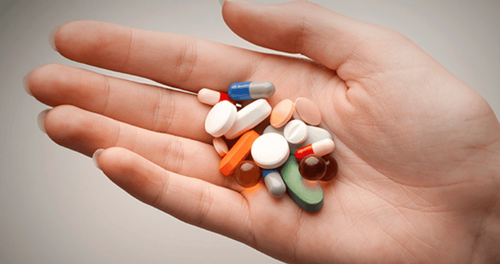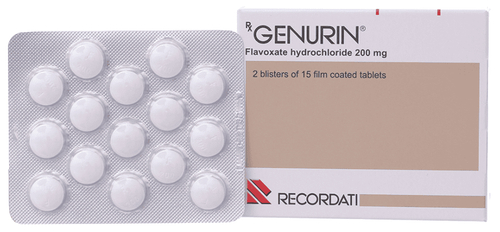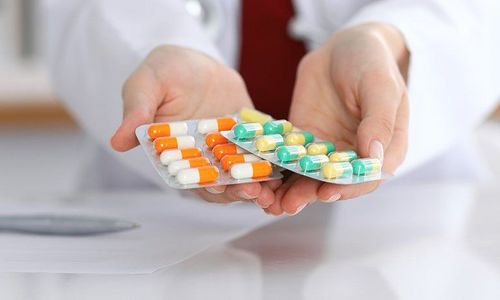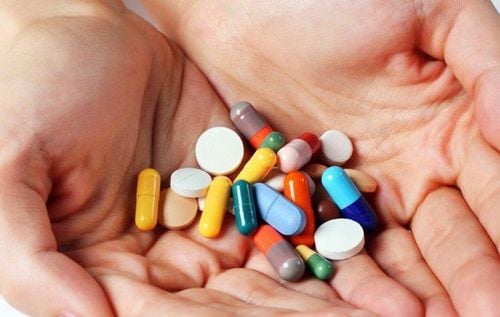This is an automatically translated article.
Urinary tract infections are the common name for drugs used in the treatment of urinary tract infections. Besides the therapeutic effect, UTI drugs can cause some unwanted side effects, affecting the patient's health. What are the side effects of urinary tract infections?
1. What are warning signs of urinary tract infection?
Urinary tract infection is an infection inside the urinary tract (including the bladder, kidneys, ureters and urethra), usually caused by bacteria such as E. coli. Women are at a much higher risk of UTIs than men because a woman's urethra is short, allowing bacteria near the vagina to enter the bladder more easily.
Urinary tract infection symptoms may include: pain or burning when urinating, frequent need to urinate, urinary urgency (small amounts), blood in urine, cloudy urine, pink color, fishy odor , pain and cramping in the pelvis or pubic area. If you experience any of the above symptoms, see your doctor for timely treatment of a urinary tract infection.
2. Common side effects when taking drugs for urinary tract infections
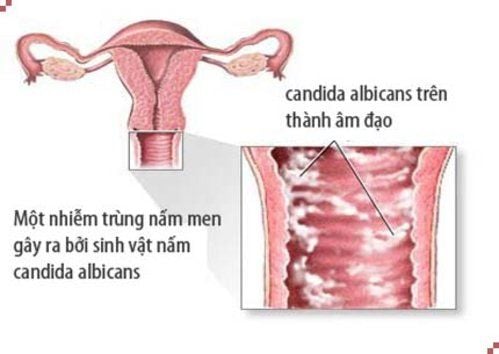
Nếu bạn bị nhiễm trùng nấm âm đạo khi dùng thuốc viêm đường tiết niệu có thể làm thay đổi sự cân bằng giữa vi khuẩn có lợi và vi khuẩn có hại trong âm đạo
The drugs used in the treatment of UTIs are usually antibiotics such as: Trimethoprim/sulfamethoxazole, Fosfomycin, Nitrofurantoin, Cephalexin, Ceftriaxone, Flouroquinolones such as Ciprofloxacin, Levofloxacin, ...
Each UTI drug has separate side effects. However, there are common side effects to most UTI medications including:
Vaginal or oral yeast infections : Use of UTIs can alter the normal balance of the urinary tract. usually between good bacteria and bad bacteria in the vagina, thereby causing Candida albicans infection. Stomach upset: When using antibiotics in general and urinary tract infections in particular, it can affect the stomach, causing nausea, vomiting, loss of appetite, stomach pain or heartburn, indigestion. Taking UTIs with meals can help relieve abdominal pain. Diarrhea: As with other antibiotics, UTIs can often lead to uncomplicated diarrhea or loose stools. This side effect goes away after stopping the drug. Stevens Johnson syndrome (SJS) and toxic epidermal necrolysis (TEN): These are rare but serious allergic drug reactions. This syndrome presents with skin manifestations such as rash, skin peeling, mucosal sores and can be life-threatening. Urinary tract infections that can lead to Stevens Johnson Syndrome (SJS) and toxic epidermal necrolysis (TEN) such as sulfonamides, penicillins, cephalosporins, and fluoroquinolones.
3. Some notes when using drugs for urinary tract infections
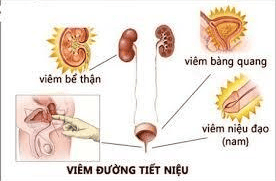
Thuốc viêm đường tiết niệu có hiệu quả tốt trong điều trị viêm đường tiết niệu
For safe and effective use of UTIs, there are a few important points to keep in mind.
3.1 Why should a full dose of UTI medicine be taken? Urinary tract infections are antibiotics that work well in the treatment of urinary tract infections. Symptoms may improve after only a few days of UTI treatment. However, if you stop taking UTIs too soon, chances are that the bacteria in the urinary tract will not be completely eradicated. These bacteria can cause the body to become resistant to antibiotics. Therefore, you should drink the entire course of treatment with UTI drugs to ensure that all bacteria in the urinary tract have been destroyed.
MORE: The formation of antibiotic-resistant bacteria
3.2 In what cases should a doctor be contacted after taking the drug? During treatment for UTIs, contact your doctor immediately if you notice that your symptoms do not go away or get worse, return to symptoms after treatment, or experience any side effects. What a nasty side.
Urinary tract infections are drugs used to treat inflammatory diseases of the urinary tract. To ensure safety and avoid side effects, patients should carefully read the instructions before use or follow the instructions of the doctor or pharmacist.
Please dial HOTLINE for more information or register for an appointment HERE. Download MyVinmec app to make appointments faster and to manage your bookings easily.
Reference sources: drugs.com, webmd.com



